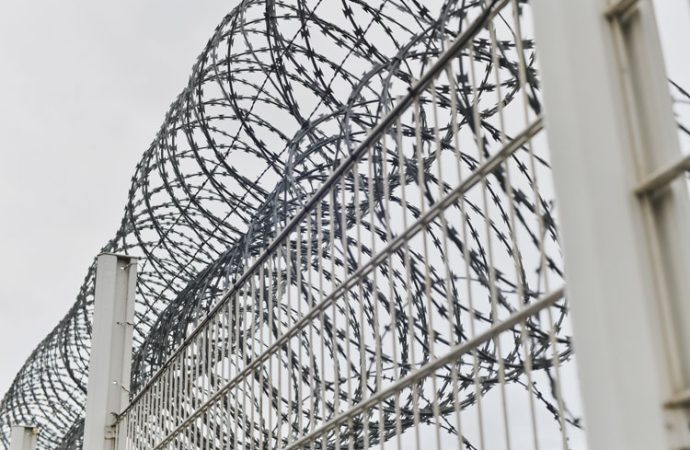Author Recent Posts Malaika Shamim Alam Latest posts by Malaika Shamim Alam (see all) Comparing NAP-2023 and UN COP-28 goals: What is doable for Pakistan? – January 2, 2024 Why Pakistan is sending back illegal immigrants? – December 27, 2023
Pakistan has opted to repatriate undocumented migrants due to national security concerns. Despite Pakistan’s assertion that its October 3 directive, mandating the deportation of unauthorized asylum-seekers doesn’t specifically target Afghan refugees, yet a widespread misconception lingers about its intent. Human rights activists and nationalist groups have engaged in debates and voiced criticism following the decision.
Pakistan has shown remarkable generosity in accommodating Afghan refugees since the 1980s. The ease of cross-border movement, rooted in common socio-cultural practices, has benefited both nations. However, the illegal border crossing movement, the informal settlements and increased demand for public services by Afghan refugees have exacerbated the strain on infrastructure, impacting healthcare, education, and housing sectors. This strain is evident in metropolitan cities of Karachi, Quetta, Peshawar, and Hyderabad, leading to challenges in providing essential services to both the local population and refugees. This situation also sparks ethnic tensions and complicates urban planning, posing challenges for both the local population and refugees.
The presence of refugees is seen as a serious concern, imposing a substantial burden on the economy and poses a direct threat to economic security and political stability. The investigation underscores the underlying social and security reasons for this decision. The influx of illegal Afghans has contributed to social issues like crime, the proliferation of weapons, drug abuse, prostitution, and economic decline. Secondly, the presence of militants among Afghan refugees significantly impacts Pakistan’s domestic security environment. Recent activities of the Taliban show the gravity of security challenges. This has become apparent since the advent of the Afghan Taliban government in Kabul. The Tehreek-e-Taliban Pakistan (TTP) endeavor to use Afghan migrants as a tool to keep Pakistan under pressure. This strain on security is evident from the fact that up to 75% of the attacks carried out in Pakistan this year involved Afghan nationals.
The Pakistan government faces tough challenges such as Taliban’s noncooperation, domestic political unrest, and a sluggish economy. It lacks the political and financial capacity for a significant military operation at home. This decision is aimed at exerting political and economic pressure on the Taliban, urging them to cease support for the TTP. The overarching goal is to create a conducive environment for collaborative efforts against terrorism, considering the significant political, ethnic, conomic, and social implications of the influx of Afghan refugees.
This decision was made as a systematic border control measure involving civil and military stakeholders. The decision signals a departure from business as usual, indicating Pakistan’s intolerance for informal means of dealing with border crossings and Afghanistan’s delays in implementing necessary reforms. But it doesn’t come without ramifications. This unilateral decision to expel Afghan refugees, risking the remaining diplomatic goodwill that Pakistan has in Kabul will escalate anti-Pakistan sentiments among the Afghan public. By addressing the management of refugee influx, particularly from Afghanistan, Pakistan aims to adhere to legal frameworks while safeguarding the well-being and safety of its population.
Pakistan, as of the present, is not a signatory to the 1951 Convention relating to the Status of Refugees. Consequently, there exists no formalized pathway for the complete assimilation of refugees within the national legal framework. The absence of a well-defined, long-term refugee policy underscores the understanding that the refugee presence in Pakistan is envisioned as temporary rather than permanent. Following the resolution of the conflict and the subsequent stabilization of the crisis in Afghanistan, the imperative for refugees is to return to their home country. Notably, Pakistan has undertaken several repatriation initiatives over the years, with a significant instance occurring in 2016 when approximately 600,000 Afghans returned to their home country.
Pakistan has presented proposals to Afghanistan for the return of refugees and the establishment of a modern visa system to enhance security coordination. Unfortunately, the response from Afghanistan has been limited, with the Afghan Taliban criticizing the move. Despite this, Pakistan’s focus is on establishing a clear and legitimate policy to address illegal refugees, streamlining border control, and adhering to international standards. The Afghan government’s cooperation is crucial, and instead of issuing threats, it should assist in repatriating its citizens. it is imperative that both countries have an honest conversation and identify areas of agreement. Only through cooperation can Afghanistan and Pakistan find a win-win solution that ensures border security and protects human rights. The question remains: will both nations navigate this challenge together? and how might the deportation impact the broader regional dynamics and relationships, especially considering the historically complex relationship between Afghanistan and Pakistan? Is there a more systemic way for Pakistan to deal with undocumented refugees in a way that is different from deportation but it does receive some kind of economic incentives and logistical support to take care of refugees?
- Comparing NAP-2023 and UN COP-28 goals: What is doable for Pakistan? - January 2, 2024
- Why Pakistan is sending back illegal immigrants? - December 27, 2023





















Leave a Comment
Your email address will not be published. Required fields are marked with *